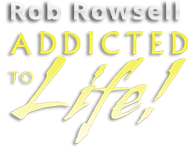![]() Do you want to win at wealth, but financial lingo confuses you? Learn the glossary of money words from wealthy investor Rob Rowsell. Sit under Rob’s learning tree! Find out how to make smart investments that apply these financial terms and formulas.
Do you want to win at wealth, but financial lingo confuses you? Learn the glossary of money words from wealthy investor Rob Rowsell. Sit under Rob’s learning tree! Find out how to make smart investments that apply these financial terms and formulas.
Financial Terms For Wealth Wins
Rob jumps right in explaining financial terms and outlining his wealth glossary. The definitions, as well as useful formulas, are outlined below.
Net Worth
Simply put, your Net Worth is the measure of everything you own, minus everything you owe. The net worth formula? Assets minus Liabilities equal Net Worth.
Income
Rob groups Income into two categories: Active Income and Passive Income. He defines them as follows:
Active Income
W2 Income, 1099 Income, and Active Business Income are types of Active Income. Basically, if you work directly to earn money, we classify it as Active Income.
Passive Income
Rob defines Passive Income as money earned without directly working for it. Capital Gains from the sale of one of your assets is one example. Appreciation of one of your assets also counts.
Passive Residual Income
Some refer to this as Horizontal Income. Passive Residual Income could mean dividends from investments, rent paid from your properties’ tenants, or royalties earned from Intellectual Property. Regardless, this can be an outstanding income source, and one everyone should seek out, since it is literally mailbox money, arriving regularly in your account.
Financial Terms Continued: Vitality Factor
Rob then tells us about the Vitality Factor. This is formula is hugely important to understand in the financial world. In order to arrive at your Vitality Factor, you add your Personal Expenses to your Deductible Business Expenses. These factors add up to produce your TRUE Cost of Living, before subtracting taxes and charity contributions. An example of deductible business expenses for Rob is auto repair. When Rob owned several auto repair shops, he could write off his own automotive repair expenses. However, now that he has sold the businesses, those expenses are solely personal.
Horizontal Income Score
We talked about Passive Residual Income earlier, also called Horizontal Income. The Horizontal Income Score is a formula to best measure your ability over time to convert your Net Worth to your ultimate goal, Horizontal Income. When you divide your Horizontal Income by your Net Worth, you get your Horizontal Income Score. For example, you currently have a Horizontal Income of $100,000. Your Net Worth is $1 Million. When you divide those numbers, you arrive at a score of 10. That’s a great score, and it’s twice the average! The higher the number, the better. Remember, do your homework and exercise your advantages to reach your ultimate retirement scenario, Passive Residual Income.
Nest Egg Theory – Financial Terms Part 1 Concluded
Rob talks about the Nest Egg Theory a lot. This concept powers the most common retirement plan people subscribe to. This defines freedom as a number, specifically a big bag of money that we are filling up via our 401k’s and other retirement plans. Rob reminds us of the very real fear hiding behind this theory that we may live long enough that the money will run out, and we will have to return to earning w2 Active Income in our old age. This is why we work over time in order to invest our Active Income gains into sources that will generate passive mailbox money in our twilight years.
Join Our Community
Do you own multi-family properties? If not, do you aspire to one day? Then you should consider joining our online discussion group, the ATL Inner Circle Community! Each month, Rob Rowsell will teach you what you must do in order to build wealth in the real estate business. It’s not as easy as it looks! Property taxes, liens, and legal fees can all be hard to navigate, so having a successful guide in your corner like Rob is a must! Sign up today!

 Reduce Tax Drag On Your Investments Today
Reduce Tax Drag On Your Investments Today Tax Saving Secrets, 1 and 2
Tax Saving Secrets, 1 and 2 Plan Life After Retirement
Plan Life After Retirement Passive Residual Income Explained
Passive Residual Income Explained Investing For Maximum Return – Building Assets and Repurposing Them
Investing For Maximum Return – Building Assets and Repurposing Them Earning Active Income – The First Step to Winning the Money Game
Earning Active Income – The First Step to Winning the Money Game Build A Successful Company – Step By Step To An Extraordinary Business
Build A Successful Company – Step By Step To An Extraordinary Business What Are Buy and Hold Real Estate Deals?
What Are Buy and Hold Real Estate Deals? What’s in Rob’s Real Estate Buy Box?
What’s in Rob’s Real Estate Buy Box?